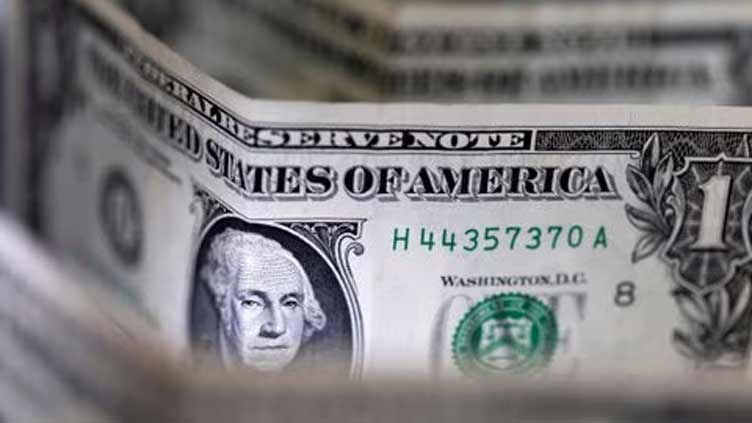Dollar keeps gains as traders bet Fed headed for a pause

Business
The dollar index eased 0.059% to 102.02
SINGAPORE (Reuters) - The US dollar was clinging close to a more than one week peak on Friday as a slew of data overnight pointed to a slowing US economy, with investors betting that the Federal Reserve will further pause its interest rate increases.
The dollar index , which measures the U.S. currency against six rivals, eased 0.059% to 102.02, not far from the 102.15 it touched overnight, the highest since May 2. The index is set to snap a two-week losing streak, gaining 0.7% this week.
Carol Kong, a currency strategist at Commonwealth Bank of Australia, said the market is probably encouraged by weak U.S. economic data and continues to price in some pretty aggressive rate cuts by the Fed this year.
Kong said currencies will probably trade in a relatively tight range during Asian hours. "Given the data calendar today is pretty light, I think currencies likely remain in the recent ranges and markets will be pretty quiet going into the weekend."
The number of Americans filing new claims for unemployment benefits jumped to a 1-1/2-year high last week, pointing to cracks in the labour market as demand slows, according to data on Thursday, which also showed that producer prices rebounded modestly in April.
The reports were seen as consistent with most economists' expectations of a recession by the end of the year.
"These figures should please the Fed, as any softening in labour markets would help cool U.S. inflation," said Ryan Brandham, head of global capital markets, North America, at Validus Risk Management.
Markets are pricing in a 98% chance of the Fed standing pat in its June meeting but has started to price in deep cuts in interest rates by the end of the year, the CME FedWatch Tool showed. Rate futures contracts point to trader expectations for the Fed to start cuts in September.
Minneapolis Federal Reserve President Neel Kashkari said on Thursday that an extended period of high interest rates and an inverted yield curve could put more stress on banks, but would be necessary if inflation stays stubbornly high.
Christopher Wong, a currency strategist at OCBC, said there is still a wide disconnect between markets and the Fed on the timing and size of rate cuts, with markets looking for cuts of around 75 to 80 basis points, while the Fed seems to be determined to keep rates on hold.
"There will be volatility when the market adjusts to close up the disconnect," Wong said. "In the event, markets will eventually unwind their dovish hopes and re-align their rate expectations with the Fed, then USD may still find some support."
Fed policymakers have about five more weeks of data to parse before their next meeting, and have said they intend to sift through it carefully before making their decision.
Meanwhile, the euro was up 0.03% to $1.0917, while the Japanese yen strengthened 0.03% to 134.53 per dollar.
The Australian dollar eased 0.01% to $0.670. The kiwi fell 0.24% to $0.628.
Sterling was last trading at $1.2512, up 0.02% on the day, after dropping 0.6% on Thursday.
The Bank of England raised its key interest rate by a quarter of a percentage point to 4.5% on Thursday and Governor Andrew Bailey said the British central bank would "stay the course" as it seeks to curb the highest inflation of any major economy.
NatWest strategists said the absence of any dovish dilution to the BoE’s policy guidance leaves the door open to further tightening but they believe inflation may ease through this year and that might mean further increases may not occur.
"We continue to think that headline inflation will come off rapidly in the months ahead, while lagged headwinds to the consumer from higher rates will dampen demand, meaning 4.5% will likely be the peak in Bank Rate."

